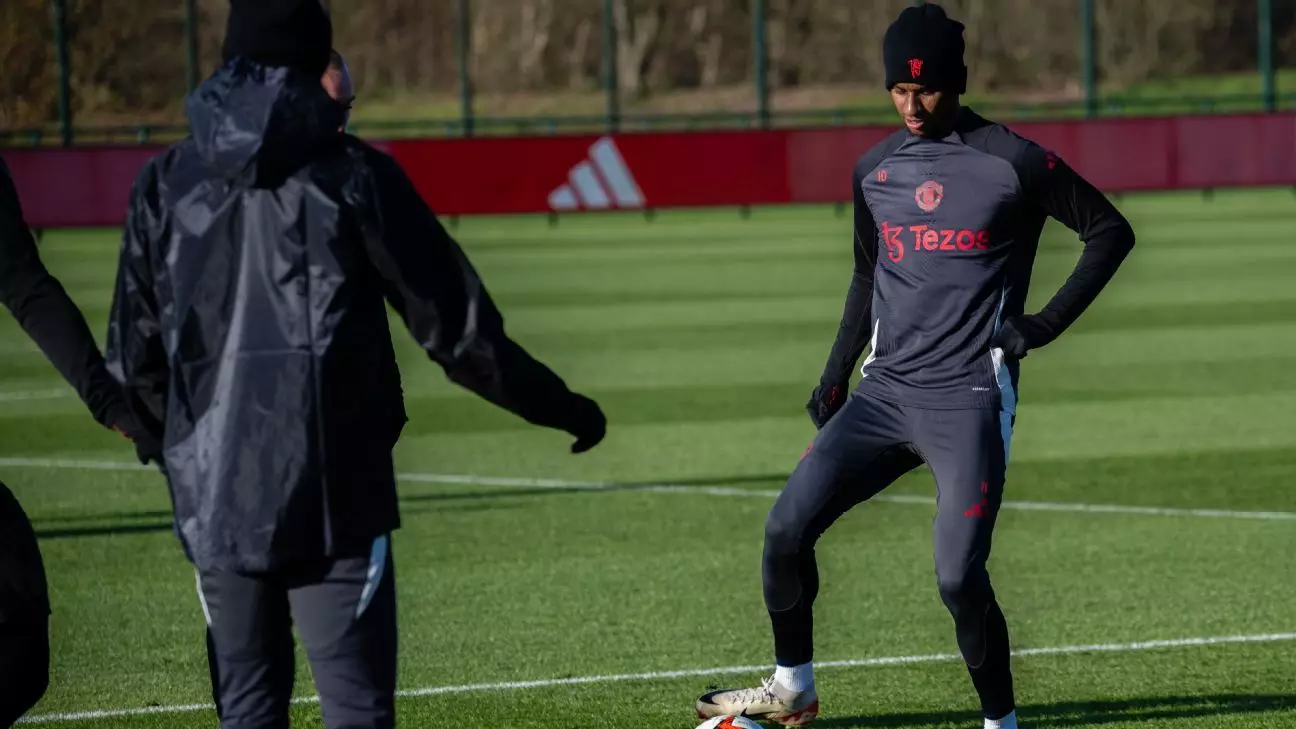In a bold managerial move, Ruben Amorim has put Marcus Rashford on the bench, making it clear that the player’s future at Manchester United hinges on his performance rather than his recent comments regarding his desire to leave the club. Dropped from the squad for three consecutive games, including high-stakes matches against Manchester City, Tottenham, and Bournemouth, Rashford finds himself in a precarious situation that demonstrates a clash between personal ambition and team expectations.
Amorim has swiftly dismissed any notions that Rashford’s omission stems from the controversial interview where he expressed his readiness to depart from Manchester United. Instead, he emphasizes that the decision is purely performance-driven, affirming that the England international’s training sessions haven’t met the club’s standards. Amorim’s transparent communication with Rashford reveals a managerial style that values meritocracy; he insists he doesn’t lose sight of the objectives and responsibilities that come with wearing the United jersey.
Amorim states, “When I feel that it is the right moment, I will change something.” This sentiment illustrates his unwavering commitment to the team’s collective success, emphasizing the necessity for players to rise to the occasion, especially in tumultuous times when the club is underperforming.
Rashford is certainly not without talent; his skills have dazzled fans previously. However, Amorim is calling for a higher standard of “engagement” and “responsibility” from the player, urging him to harness his abilities for the benefit of the team. Rashford is challenged not only to revert to his best form but also to lead by example. Amorim’s assessment implies that players of high skill must elevate their game, particularly when the club is facing adversity.
In an environment where morale can dip following back-to-back defeats, the need for Rashford to step up becomes even more pronounced. He isn’t just playing for individual glory but also carries the weight of the team’s aspirations on his shoulders during these challenging situations.
Despite increasing media scrutiny surrounding Rashford’s absence and the implications of his interview, Amorim assures that the situation has not created a distraction for the team. He insists that daily interactions with players result in a shared understanding of expectations and responsibilities. This approach signifies Amorim’s focus on cultivating a training environment that is conducive to improvement rather than allowing external pressures to influence team dynamics.
While Rashford’s return and redemption on the pitch remain uncertain, Amorim’s clear and resolute stance could serve as a pivotal moment in both their careers. By setting boundaries and insisting on accountability, Amorim is not just coaching a team but is also fostering a culture of resilience within Manchester United during a period of instability. Ultimately, the success of this strategy will depend on Rashford’s response and whether he can rise to fulfill the expectations placed upon him.

